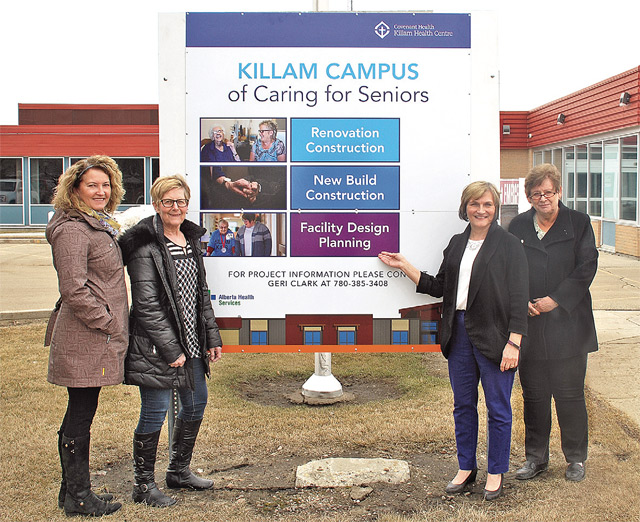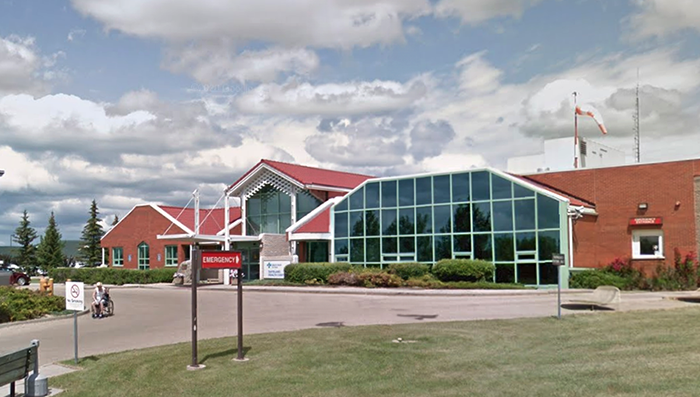Killam Campus of Caring for Seniors project progressing

The Killam Campus of Caring for Seniors expansion project is officially in the Facility Design and Planning Stage, and will soon be stepping into the New Build Construction phase, says project manager Geri Clark.
Clark says that the official plans for the new construction and renovation of the existing area are now complete, and will be going for tender as soon as next week.
She said in the current construction marketplace, things are looking like the project can be started immediately, and that pricing may be better than anticipated.
The plan is to have sections of the new building built off site in modules of four rooms, which will be brought in and attached to each other and the existing building on site.
Once the new rooms are in, the new expansion must be commissioned, then residents and staff can move in. Then renovation plans will proceed for phase two of the project, turning the existing area into four couple suites, two bariatric rooms, a palliative care room, and two more residents rooms.
“Residents will be unaffected by construction,” says Clark, “with the least disruption as possible to our residents and staff.”
She said the onsite work will be site preparation, so people won’t see a lot of progress until the modules come on site, and then they will see a very big change in a relatively short time period.
The project is not all about the building, she says. It’s always had two components.
Not only will continuing care residents be living in new rooms, with 350 square feet, with every room having its own bathroom, and small kitchen area featuring a bar-type fridge and microwave, but Covenant Health is also introducing a new care model that will be rolled out in Killam, and the rest of the province.
Clark says the new area will feature 12 permanent dementia rooms, with provisions to convert a further four rooms if needed, for a total of 16.
“We listened to our families, residents, and staff, and we know they want green spaces, too, so we will have two courtyard areas, and the one in our dementia care area will allow those residents to wander outside.
They are also planning an outdoor gardening and ‘tinkering’ area.
“If our residents have a hobby, we want them to be able to continue to do that, or to learn new hobbies, if they wish.”
In addition, in the dementia care areas, Clark says that residents there will have their own activities more suited to their needs.
She says one of the things common to many residents is a loss of appetite.
To that end, plans to install convection ovens in each dining room, and to bake bread and other goods before meals is expected to have a positive effect.
“Memories of smell don’t change,” Clark says, “We know that.”
In stage two, minor disruptions in some services are expected, Clark says, but will have little effect, as in the Chaplain’s office, for instance, as most of his work is done in the resident’s space.
Clark says that the large structure on the side of the building, called the clinic, is still being developed.
“This could include rooms where residents can meet with their tax professionals, or lawyers, with their families.
She says that the new hair salon was developed with the understanding that it needs adaptive devices to meet the resident’s needs.
“We’re putting in a small cafe. When families come they can go for coffee. That’s a normal thing that often our residents find extremely difficult to do outside the facility.”
The biggest improvement will be privacy, Clark says. From private rooms, to private ensuite bathrooms, now when each resident’s care needs a change, it will not affect their roommate, and that will be a big improvement for everyone.
Read the full story in the latest edition of The Community Press – available on newsstands now and online via E-Subscription. Never miss an issue: become a Subscriber today!
Leslie Cholowsky
Editor








